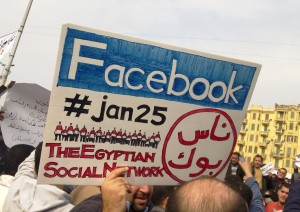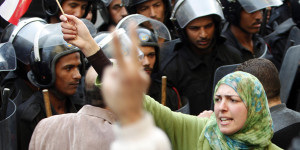“We use Facebook to schedule the protests, Twitter to coordinate, and YouTube to tell the world.”
Following the Arab Spring uprising, the Egyptian nation faced an immense attack through the power of social networking. We have come to realise that the tool of social networking is a powerful one.
It is the accessibility of social media that has proven to be a success in the Egyptian riots. Media platforms being readily available at their finger tips have provided the Egyptians with the upper hand. It is the ‘NOW’ aspect of social media that is gaining popularity among the masses, in particular, among the youth of today’s generation. They are highly attracted to the fast pace messaging, instantaneous status updates and consistent feedback with comments. It is through these facilities that Egyptian’s youth have effectively utilized in order to gain high numbers for rioting. The ‘NOW’ characteristic of social media have enabled rioters to express immediate feelings and thoughts of events that occur by the minute. The instantaneous communication and interaction through social networking have demonstrated the intimate domination of the world of cyberspace. It is getting more and more out of control as it is being readily used. Neighbouring states have begun adopting this technique of social networking to further benefit their political interests.
One would often wonder over the use of social media within society. Is it benefitting or detriment towards society? Is society progressing successfully with the increasing advancement and reliance upon social media? These are some questions that are constantly raised with regards to the role of social networking within a rising media-driven sphere.
Users of social media have become ‘social animals’; constantly greedy and hungry for the taste of complex cyber networking. Users have developed a strong intimate connection, with social media creeping into their daily lives, manipulating their every action. This presents us with the scary aspect of social media. It is the extreme influence they possess over this generations youth that is unprecedently mind-blowing. Their control stretches over the activities that occur daily in any young person’s life. Is it destroying the essence of our twenty-first century youth? Are they turning towards a manipulative world of networking? One could argue that our youth are being encouraged to participate politically and socially through social media in order to voice their opinion. However, the innocence of social networking has been taken advantage of for personal interests. Egyptians, specifically speaking, have chosen a clever platform for their interests to be detected. It is evident that through individual participation within social media have grown to incorporate collective masses, in collaborating to undertake social and political action through rioting.
A significant contributor towards the Egyptian revolution was a young activist and member of a youth movement, who cleverly sought to target her audience through the witty use of vlogging. The activist posted a video urging the people of Egypt to meet her at Tahrir Square to rise up against the government and insist democracy. The video consists of her speaking of 4 other protestors who had previously set themselves alive stressing their disgust against the three decade reign of poverty and degradation. It was within moments when the video was posted on Facebook, then on YouTube. It went completely viral across the Egyptian nation. Following her vlog, she had managed to steer hundreds and thousands of social media users to the streets of Tahrir Square to riot against their corrupt and defile government.
It is this generation of youth-driven revolution that has the world going bonkers over the effective exploitation of social networking. It really is the biggest craze in cyberspace! Once being hooked onto a social movement, the power of social media begins to take its form…




